#british english
Text
i'm conducting an experiment. everyone who's from an english speaking country state your country, regional area and what you call the following images. i need to see something







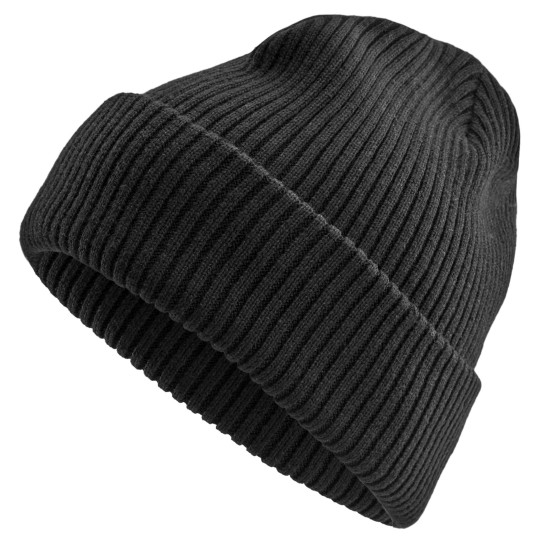

#ex: united states > south > sodapop#please rb so more people see#american english#australian english#british english#canadian english#english#english language#dialects#accents#american accent#australian accent#british accent#canadian accent#english accent#america#australia#england#canada#those four are my target audience but all answers from around the world are welcome!!#tumblr#discourse#experiment
22K notes
·
View notes
Text
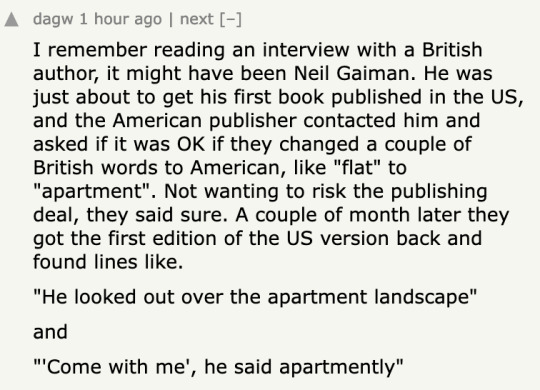
@neil-gaiman did that actually happen to you? Pretty funny nevertheless
31K notes
·
View notes
Text
youtube
Watch the American Climate Leadership Awards 2024 now: https://youtu.be/bWiW4Rp8vF0?feature=shared
The American Climate Leadership Awards 2024 broadcast recording is now available on ecoAmerica's YouTube channel for viewers to be inspired by active climate leaders. Watch to find out which finalist received the $50,000 grand prize! Hosted by Vanessa Hauc and featuring Bill McKibben and Katharine Hayhoe!
#ACLA24#ACLA24Leaders#youtube#youtube video#climate leaders#climate solutions#climate action#climate and environment#climate#climate change#climate and health#climate blog#climate justice#climate news#weather and climate#environmental news#environment#environmental awareness#environment and health#environmental#environmental issues#environmental justice#environment protection#environmental health#Youtube
3K notes
·
View notes
Text
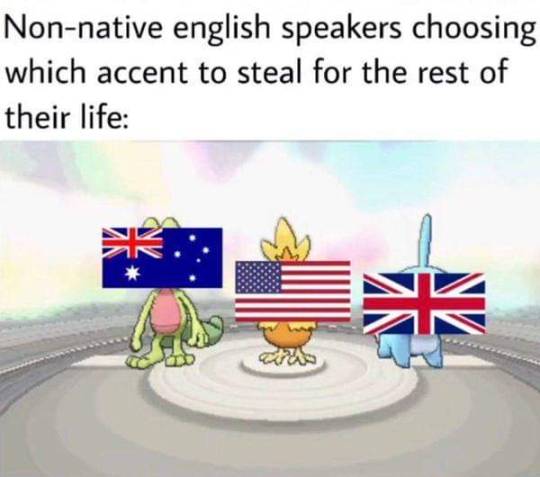
#reddit memes#english#english language#learning english#australia#australian english#american english#british english#uk#twitter#tweets#funny twitter#twitter memes#twitter jokes#funny shit#funny#funny tweets#memes#fresh memes#dank memes#viral tweets#internet memes#minyicho#lol#lmao#haha#relatable#relatable twitter#relatable tweets#relatable memes
1K notes
·
View notes
Text
New version of the poll:
It is the middle of a Sunday afternoon. You have nothing on (this means you don’t have anything going on, not that you’re naked- I copied it word for word from the original post), and aren't expecting visitors, deliveries or post.
Unexpectedly, there is a knock at the door.
(by “real” I mean they are fictional characters but they are really at your door. It is not Michael Sheen and David Tennant)
#tumblr polls#british english#USian English#separated by a common language#tumblr#good omens#good omens 2#aziraphale#crowley#ineffable motherfuckers#ineffable husbands#ineffable*#aziracrow#gomens*#walrus#fairy#good ineffable omens#michael sheen#david tennant#neil gaiman
103 notes
·
View notes
Text
damn girl are you british english. because americans. keep trying to take U out. wait can I try again
i must be british. because i can't see colour without u. hang on one more time
girl are you u. because u are in colour?
82 notes
·
View notes
Text
English vocab you may not know
Here's a list of vocab that I've complied throughout the week. They have either been new additions to my lexicon or words that I realised I myself don't know in my target languages. Enjoy :)
Zenith = "culminating point"
Lacuna = "a blank space or a missing part"
Chagrin = "disquietude or distress of mind caused by humiliation, disappointment, or failure"
Diatribe = "a bitter and abusive speech or piece of writing"
Myriad = "a great number"
As always, all definitions sourced from Merriam Webster https://www.merriam-webster.com/
#lingblr#langblr#linguistness#linguistic#linguistics#multilingual#linguist#language#language learning#learning languages#languages#translation#:#english#british english#learning english#esl#english language#english vocabulary#english grammar#learn english#english tips
67 notes
·
View notes
Text
❎ American English
❎ British English
✅ Elvish English from LOTR
40 notes
·
View notes
Text
I have just started learning Portuguese, and I am fascinated by the pronunciation of European Portuguese compared to Quebecois French: we both completely omit a significant proportion of the vowels in our words in basically the same way. But whereas the attitude in Quebec seems to be that this is wrong or bad somehow, when learning European Portuguese it is considered the correct pronunciation. So the immediate conclusion I would draw is that there is still a strong "metropole = correct" bias.
But: Nobody ever seems to imply that the Brazilian pronunciation, where all the vowels are actually pronounced, is inferior. In fact, when trying to learn Portuguese as a second language, Brazilian Portuguese seems to be the standard.
To me, arguing that Quebec French is somehow inferior or less correct than France French has always seemed absurd, like arguing that Canadian or American English are somehow less correct than British English.*
And yet I know that a lot of people think that any English that isn't RP is inferior or incorrect, and that speaking RP means that you "don't have an accent". 🙄
I haven't studied Spanish, so I don't know what the attitudes are towards the respective dialects there.
I imagine this has all been researched and I am curious to learn more. I feel like in my limited experience, on a scale of how much the metropolitan dialect is valued over the colonial dialect, French is the highest and Portuguese is the lowest, with English somewhere in between, but I could be completely off base. I wonder what the factors are that affect these attitudes.
*I should disclose my personal bias that I vastly prefer Quebecois French: It's pithy! It's evocative! It goes straight for the gut.
#lingblr#dialects#linguistics#metropolitan dialect#colonial dialect#language#European Portuguese#Brazilian Portuguese#Quebecois French#France French#British English#American English#Canadian English
42 notes
·
View notes
Text
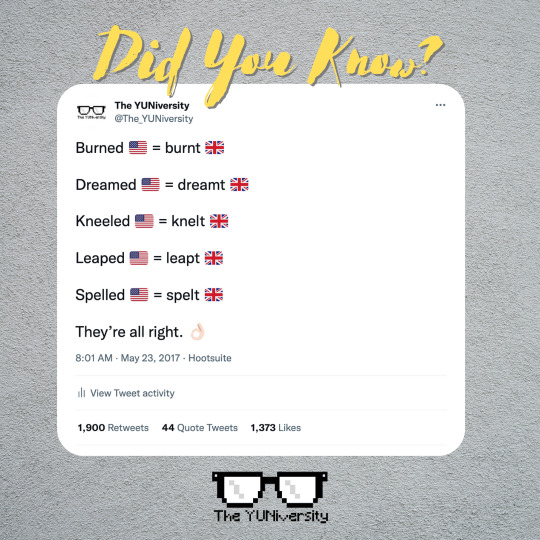

Website | Twitter | Instagram | Medium | Pinterest | Ko-fi | eBook
#vocabulary#spelling#burned#burnt#dreamed#dreamt#learned#learnt#spelt#spelled#American English#British English
10 notes
·
View notes
Text
part 2 of my experiment: what english-speaking country are you from, what region and what do you call the following images? if you don't know what the first image is please try to guess i'd love to see it

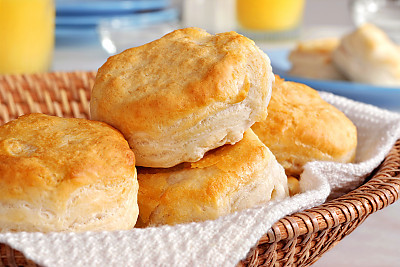







#ex: australia > victoria > bread#please rb so more people can see#american english#australian english#british english#canadian english#english#english language#dialects#accents#american accent#australian accent#british accent#canadian accent#english accent#america#australia#england#canada#those four are my target audience but all answers from around the world are welcome!!#tumblr#discourse#experiment#click the link for part one
309 notes
·
View notes
Text
British Phrases/Slang
In writing, colloquialism works by using common terms and phrases to create a sense of authenticity and informality, which can enhance dialogue. For this reason, I'm making a short list of what I've seen and heard in British television, film, and books.
Taking the mickey (out of someone): Teasing or making fun of someone.
Example: "Are you serious, or are you just taking the mickey?"
Knickers in a twist: Getting upset or overly worried about something.
Example: "Don't get your knickers in a twist; it's just a minor issue."
Full monty: The whole thing or complete package.
Example: "I want the full monty – don't leave anything out."
On the blink: Not working properly.
Example: "My computer's on the blink; I need to get it fixed."
Sod's law: The idea that if something can go wrong, it will.
Example: "Of course, it started raining right after I washed the car – sod's law."
Off one's trolley: Crazy or insane.
Example: "Did you hear what he said? He must be off his trolley."
Lost the plot: Became confused or irrational.
Example: "I have no idea what he's talking about; he's completely lost the plot."
Bob's your uncle (and Fanny's your aunt): It's basically 'there you have it'. It is used to convey that something is very easy or straightforward, and that success or a positive outcome is guaranteed. The addition of "and Fanny's your aunt" is often used for humor and emphasis, without changing the meaning significantly.
Example: "Just turn the key, and Bob's your uncle – the car starts."
Example 2: "Just follow these instructions, and Bob's your uncle, and Fanny's your aunt, you're done!"
Taking the biscuit: Going too far or being unreasonable.
Example: "Asking me to work on a Sunday? That really takes the biscuit!"
Arse over elbow: Tumbling or falling over.
Example: "He tripped on the pavement and went arse over elbow."
Pop one's clogs: Die or pass away.
Example: "If I don't get enough sleep, I feel like I might pop my clogs."
Spend a penny: Go to the bathroom.
Example: "I need to spend a penny before we leave."
Throw a spanner in the works: Cause a disruption or problem.
Example: "The unexpected delay really threw a spanner in the works."
Throw a wobbly: Have a temper tantrum or get upset.
Example: "She'll throw a wobbly if she finds out we lost her keys."
Chuffed to bits: Extremely pleased or proud.
Example: "She was chuffed to bits when she got the promotion."
Flog a dead horse: Waste time on a hopeless cause.
Example: "Trying to fix that old computer is like flogging a dead horse."
Up the duff: Pregnant.
Example: "She's up the duff and expecting a baby in the spring."
On the pull: Trying to attract someone romantically.
Example: "He's always on the pull when we go out to the bars."
Example: "He's dressed up tonight; he's definitely on the pull."
Pear-shaped: To go wrong or fail unexpectedly.
Example: "After weeks of planning, the project went completely pear-shaped when we realized we had underestimated the budget."
The bee's knees and the cat's whiskers: Something excellent, outstanding, or the best of its kind.
Example: "This new phone is the bee's knees and the cat's whiskers – it has all the latest features."
All mouth and no trousers: Someone who talks confidently or boasts but fails to follow through with actions or achievements.
Example: "He talks a big game, but when it comes to actually doing something, he's all mouth and no trousers."
A storm in a teacup: A small or insignificant issue that is blown out of proportion.
Example: "Don't worry about that argument; it's just a storm in a teacup."
Have a butcher's (at something): To take a look at something; derived from "butcher's hook," which rhymes with "look."
Example: "Can I have a butcher's at your new phone?"
A stone's throw away: Very close in proximity; a short distance.
Example: "The shop is just a stone's throw away from here."
Bee in your bonnet: An idea or obsession that someone can't stop talking about.
Example: "He's got a bee in his bonnet about recycling; he talks about it all the time."
Mum's the word: Keep a secret; don't say anything.
Example: "I know about the surprise party, but don't worry, mum's the word!"
Cut the mustard: To meet a required standard or expectation.
Example: "His performance didn't quite cut the mustard, so he didn't get the promotion."
Bugger all: Nothing at all; absolutely nothing.
Example: "I've got bugger all to do this weekend."
Bag it up: Prepare or get ready.
Example: "Bag it up, mate – we're heading out."
On the ball: Alert, attentive, or quick to understand.
Example: "She's always on the ball at work."
Bits and bobs: Various small items or things.
Example: "I picked up a few bits and bobs from the store."
Knock it on the head: Stop doing something or take a break.
Example: "Let's knock it on the head for today; we can continue tomorrow."
Taking the piss: Teasing or mocking someone.
Example: "Are you serious, or are you just taking the piss?"
I'm pissed: Drunk or intoxicated from alcohol.
Example: "I had a few too many drinks at the pub, and now I'm pissed."
Example 2: "At the pub quiz, Sarah confidently shouted out 'Elephant' as the answer to every question. When asked why, she just grinned and said, 'I may be a bit pissed, but who doesn't love elephants? They're the answer to everything!'"
Bent as a nine-bob note: Dishonest or fraudulent.
Example: "That deal sounds bent as a nine-bob note."
Give us a bell: Call or contact me.
Example: "If you need anything, give us a bell."
Tickety-boo: Going well or in good order.
Example: "Everything is tickety-boo with the project."
Budge up: Move over or make room.
Example: "Budge up; make some space for me on the sofa."
Flog it: Sell or get rid of.
Example: "I need to flog my old clothes at the market."
Bloody hell: An expression of surprise or frustration.
Example: "Bloody hell, did you see the size of that spider?"
Full of beans: Someone is lively, energetic, and full of enthusiasm. It is often used to describe someone who is in high spirits or has a lot of energy.
Example: "Goodness, you're full of beans this morning!"
Wind your neck in: To tell someone to stop being nosy, interfering, or to mind their own business.
Example: "Maybe you should wind your neck in and not jump to conclusions about my friendships."
Wind-up merchant: Refers to someone who enjoys teasing, provoking, or playing pranks on others to elicit a reaction.
Example: "Oh, don't take it seriously; he's just a bit of a wind-up merchant."
Can't be arsed: Is used to convey a lack of motivation, interest, or willingness to do something.
Example: “I can’t be arsed with doing the assignments.”
What a load of poppycock: Is an expression used to dismiss something as nonsense or absurd.
Example: “They are changing the offside rule? What a load of poppycock!”
Chocka: Is short for “chockablock”, which is most often used when talking about something that’s completely packed, like a jammed road.
Example: “I’ll be home in ten, love, hit a chocka!”
A few sandwiches short of a picnic: Is a humorous way of saying that someone is not very intelligent or mentally sound. It can also imply that the person may be lacking common sense.
Example: “Perhaps it’s best not to task them with this. They’re a few sandwiches short of a picnic.”
To bodge: Is to mend, or repair something clumsily.
Example: "Bob forgot his toolbox, so he had to bodge a fix for the leaky pipe using chewing gum until the plumber arrived."
That's rubbish: When something is of poor quality, disappointing, or not good.
Example: "I thought the film was rubbish – the plot was weak, and the acting was terrible."
Happy as a pig in muck: Very happy.
Example: "I'm as happy as a pig in muck with all these new books to read."
Were ya born in a barn: Is used as a playful or humorous way to chide someone for not closing a door behind them.
Example: “I just got it warm in here, were ya born in a barn?”
Not give a monkey’s (uncle or toss): Not caring at all about something, being indifferent, or not attaching any importance to a particular situation.
Example: "I don't give a monkey's about what they think."
Making a right pig’s ear of something: Refers to a task or situation that has been poorly handled or executed.
Example: "You've made a right pig's ear of that plumbing job!"
You’re peckin’ me ‘ead: When someone is annoying, bothering, or getting on your nerves.
Example: "Would you give it a rest, you’re peckin’ me ‘ead!"
Curtain twitcher: Refers to a person who is overly nosy or prying, someone who frequently peers out of their window, often through the curtains, to observe the activities or affairs of their neighbors.
Example: "She's a real curtain twitcher, always watching and commenting on everyone else's business."
Half past: Is a way of expressing the time, particularly when indicating that it is 30 minutes past the hour on a clock.
Example: If someone says, "It's half past three," they are stating that the time is 3:30.
Innit: Is a contraction of "isn't it" and is often used to seek agreement or confirmation. It's an informal way to tag a statement, turning it into a question or seeking validation.
Example: "It's a nice day, innit?"
Smarmy: Is used to describe someone who comes across as scheming or untrustworthy.
Example: "I don't trust him – he's a smarmy geezer."
Swot: Is used to describe someone who studies hard, is diligent in their academic pursuits, or is generally focused on their work or studies. It is similar to "nerd" or "geek" in American English. It's sometimes used in a mildly derogatory manner to refer to someone who is perceived as overly studious.
Example: "She's always buried in her books, a real swot."
Bagsy: Is used as a way of claiming or reserving something for oneself. It's similar to saying "dibs" in American English.
Example: "Does anyone want thi—"
"Bagsy!"
Builder's tea: Refers to a strongly brewed cup of tea that is typically enjoyed by construction workers or builders during their breaks. It's characterized by being a simple, no-nonsense cup of tea with milk and sugar, often designed to provide a quick and energizing break.
Example: "A bacon sandwich and a builder's tea. Now that's a proper breakfast."
Dog's dinner (or dog's breakfast): Is often used to describe something that is disorganized, messy, or done in a haphazard and unattractive manner. It can refer to both physical appearance and, more commonly, to a situation or event that is poorly executed.
Example: "You've made a real dog's dinner of this room!"
Kip: Refers to sleep or a short nap. It's a casual way to express the act of resting or taking a quick snooze.
Example: "I'm feeling tired, so I'm going to have a quick kip before we head out for the evening."
#british english#british phrases#colloquialism#writing#writing help#writing reference#writing references#writing fanfiction#fanfiction help#language#colloquial terms#british expression
10 notes
·
View notes
Text
youtube
Watch the American Climate Leadership Awards 2024 now: https://youtu.be/bWiW4Rp8vF0?feature=shared
The American Climate Leadership Awards 2024 broadcast recording is now available on ecoAmerica's YouTube channel for viewers to be inspired by active climate leaders. Watch to find out which finalist received the $50,000 grand prize! Hosted by Vanessa Hauc and featuring Bill McKibben and Katharine Hayhoe!
#ACLA24#ACLA24Leaders#youtube#youtube video#climate leaders#climate solutions#climate action#climate and environment#climate#climate change#climate and health#climate blog#climate justice#climate news#weather and climate#environmental news#environment#environmental awareness#environment and health#environmental#environmental issues#environmental justice#environment protection#environmental health#Youtube
3K notes
·
View notes
Text
ADHD 🤝🏻 Being Northern English
Saying “d’ya know what I mean” after every sentence
#I just wanna make sure I’m being understood while I’m talking (I’m not)#adhd#actually adhd#neurodiverse#neurodivergence#neurodiversity#neurodivergent#linguistics#dialect#british slang#british english
15 notes
·
View notes
Text
The age of old dilemma: the fandom I’m writing for is American English but I speak British English, so which spellings to use? 🤔
190 notes
·
View notes
Text
Words that sre surpringly the same in other languages
Jazz (English/French/German/Dutch/Spanish/Portuguese)
Café (English/French/)Spanish/Portuguese/Italian/German/Dutch)
Hotel (English/French/Spanish/Italian/German/Dutch)
Chef (English/French/German/Dutch/Spanish/Portuguese)
Sushi (English/Japanese/Spanish/Portuguese)
Some of these are cognates. Cognates are are words in two different languages that have similar meanings. This happens because they share the same root. Some of these are just coincidences. Some of these, e.g. sushi, are examples of borrowing i.e. when a language uses a word from another language. This often happens with newer phenonmena as when something is introduced to a culture it won't already have a name in the new culture.
Sources:
livexp: https://livexp.com/blog/5-words-that-have-the-same-spelling-pronunciation-meaning-in-different-languages/?utm_source=blog-en&utm_medium=article&utm_campaign=%2Fblog%2F5-words-that-have-the-same-spelling-pronunciation-meaning-in-different-languages%2F
#lingblr#langblr#linguistness#linguistic#linguistics#multilingual#linguist#language#language learning#learning languages#languages#translation#english#british english#learning english#esl#english language#english vocabulary#english grammar#learn english#english tips
54 notes
·
View notes
Text
The Reason Why Americans Spell "Colour" As "Color" (And Other Weird Spellings)
For American and British fanfic writers/readers alike (or any curious souls from anywhere else) who are wondering why Americans spell certain words without an extra "U", unlike everyone else, you can thank the printing press and the classic, American tradition of "cutting corners" for that.
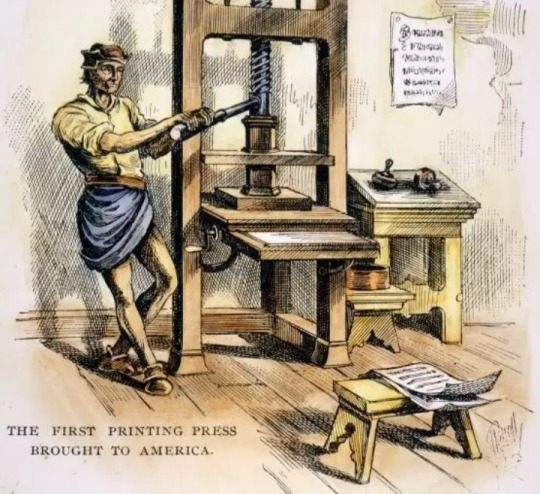
The printing press was the first machine to mass produce documents, entire books, and newspapers, when the only other alternative was writing everything out by hand, and was crucial in developing a nation that was just starting out. However, buying/transporting the machines and metal letters could be pricey and would take far too long to get to America (since all supplies had to be shipped overseas from Europe). News outlets of the time didn't want to potentially miss out on printing vital, current events during this wait and newspapers also only had so much room to get their point across on the front page. So, it became common practice to get rid of letters that didn't affect words phonetically to save on space, money, and time, drastically changing how Americans spell certain words to this day.
Words like "favourite", "flavour", "colour", "armour", and "honour" became "favorite", "flavor", "color", "armor", and "honor". We also have:
Mould➡️Mold
Encyclopaedia➡️Encyclopedia
Speciality➡️Specialty
Jewellery➡️Jewelry
Cheque➡️Check
Plough➡️Plow
Draught➡️Draft
Programme➡️Program
Spelling things phonetically also advanced the country's education, as most of the illiterate lower-class could now pick up reading a lot faster, thus, essentially, creating a middle class, where there hadn't been one before, as the written word became more accessible. This history of choosing spellings based on phonetics eventually made America into a culture that spells many words by how they sound when spoken, instead of by their root-word origins (such as Latin, Roman, Greek, etc.) even if the letter count is the same or longer.
Examples include "realise" becoming "realize", "cosy" becoming "cozy", and "offence" and "defence" becoming "offense" and "defense".
And thus concludes the deep and rich history behind why Americans spell certain things the way that they do.
So, just a tip for you British fanfic writers out there planning to write in an American fandom:
Make sure to check your spelling.
(Oh, quick side note: some Google results will say that Americans use "dialog", "monolog", and "practise" instead of "dialogue", "monologue", and "practice", but I have never once come across anyone in my life who has ever used those spellings, nor have I used an American computer/phone that will let me do that without autocorrecting me. Maybe there are some places in the US that use those, but if there are, I haven't seen them.)
#fanfic#fanfiction#authors#Writing#Literature#History#britpicking#Yank-alyst#british english#American english#The printing press#The more you know#teen wolf#the marvel cinematic universe#MCU#Supernatural#911 fox#captain america#percy jackon and the olympians#stranger things#it stephen king#DCEU#AO3
90 notes
·
View notes
Text
Because certain people in my circle pronounce the plural just like the singular and swear it's normal and it is driving me crazy. Please help me out is this normal I am worried about them
(note this is a standard English accent that these people have)
18 notes
·
View notes